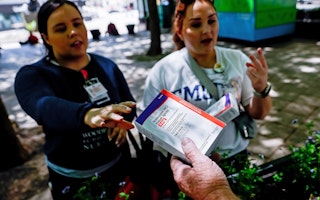Addiction Is a Disease of Cravings
By Thomas Cargiulo
All drugs of abuse affect the area of the brain that is comprised of the ventral tegmental area, nucleus accumbens, and prefrontal cortex. These are sometimes referred to as the "reward system" and "pleasure center of the brain." However, the terms "reward system" and "pleasure center of the brain" are a misnomer when it comes to addiction. Individuals who are addicted are not trying to get "high." They are trying to relieve intense cravings, and, at best, trying to feel "normal."
It is the cravings that are at the heart of the addiction. From a neurochemical standpoint, there are trigger induced cravings and stress induced cravings. Cravings are not unique to individuals with a substance use disorder. After finishing dinner at a restaurant a person may be full, but after the server brings around the dessert tray, they order a dessert (a trigger induced craving). Additionally, many people will eat "comfort foods" at times of stress (stress induced cravings). The neurochemistry of the craving is the same for someone with a substance use disorder; however the cravings are much more intense. It is this intense craving that drives the addiction.
Patients should be aware of the environmental changes that need to be made to help reduce cravings. The field of addiction has used sayings to help patients with their recovery. Patients are told to change people, places and things (trigger induced cravings), and to avoid being hungry, angry, lonely, and tired (stress induced cravings). While these have been used in treatment/recovery for decades, science is now able to show that they have a neurochemical component.
Addiction is truly a brain disease and not simply a behavior that someone can stop automatically. It is neurochemically driven, and not due to "moral weakness" or lack of "will power." Unfortunately, it is one of the few chronic diseases where normally caring health care providers treat patients poorly because of misguided notions like "it's their own fault, they should just stop using drugs." As one nursing professor once stated "no one ever got better by being treated unprofessionally." As the addiction research continues to be disseminated to medical providers, the tide will hopefully change with their treatment of these patients. Addiction is not a disease of drug use. It is a disease of cravings.
Until June 2013, Dr. Thomas Cargiulo was the program director for OSI-Baltimore’s Tackling Drug Addiction Initiative.


